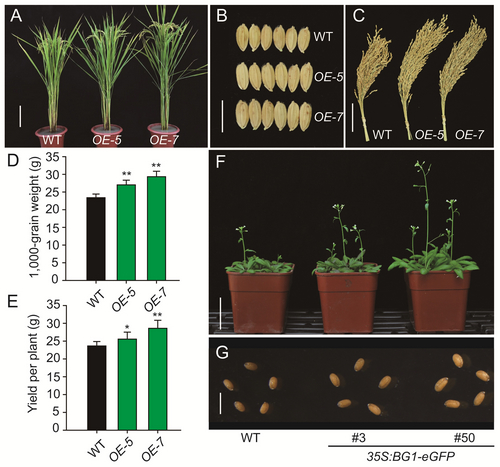Among the plant hormones, auxin is the eldest one that has been discovered for more than 80 years. However, attributing to the complexity of the auxin transport involved in the hormone response, little is known about how auxin regulates plant growth and development, especially in crop plant, which greatly impedes the application of the hormone knowledge to agricultural improvement.
A recent joint-study made by labs led by Dr. CHU Chengcai and his collaborator Dr. LI Jiayang from the State Key Laboratory of Plant Genomics, Institute of Genetics and Developmental Biology (IGDB), Chinese Academy of Sciences, identified a novel gene named BG1 involved in auxin transport and demonstrated the feasibility of modulating auxin transport to improve rice yield.
BG1, for short of BIG GRAIN1, encoding a novel plant protein localizes on cell membrane in vascular tissues, can rapidly accumulate in response to auxin and then strengthen the hormone transport to stimulate cell growth, leading to greatly enlarged grain size.
Moderately activation of BG1 by appropriate genetic manipulation can enhance rice yield up to 20%, according to the data online published on
Proc Natl Acad Sci USA (doi:10.1073/pnas.1512748112) on August 17. Similar effects were also obtained in Arabidopsis, a widely used model plant for scientific research.
"We believe that phytohormones as plant growth regulators have great potential to deal with many agricultural problems", said Dr. TONG Hongning, one of the authors in this study, “but we need to make clear first how a hormone controls each aspect of the plant growth.”
Figure 1. BG1 increases the seed weight in both rice and Arabidopsis. (Image by IGDB)





